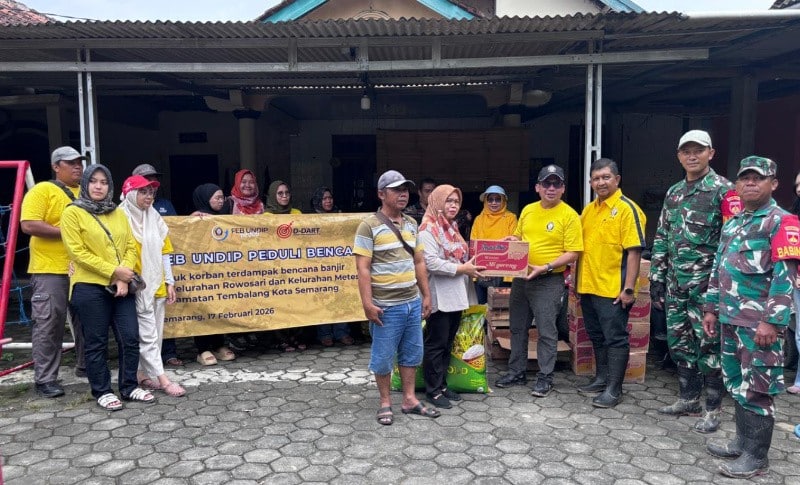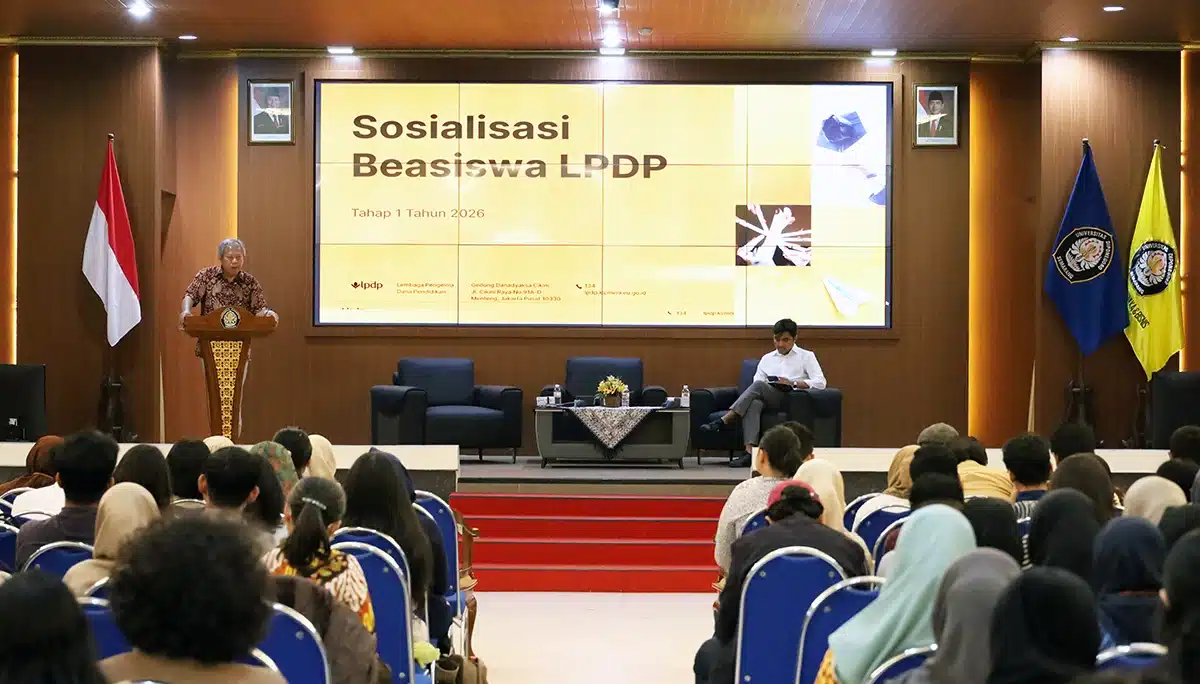Innovations and ideas from academics will bring Indonesia into a developed country and can even be a solution to the problems faced by society. An excellent invention was made by Diponegoro University (Undip) Vocational Lecturer Mohamad Endy Yulianto. He and his team are currently developing nano theaflavin tea as a medicine for Covid-19. The results of his work this year (2023) have resulted in 6 granted patents, 36 copyrights and 5 publications in reputable international journals. All of this cannot be separated from the extraordinary support of the Undip Innovation Directorate in facilitating everything from registration to patents being granted, as Endy said.
The patent granted in 2023 covers inventions with numbers IDP000089506, IDS000006687, IDS000005812, IDS000006334, IDS000005465 and no. IDS000005673. Patent number IDS000005673 is currently being tested in the PPTK Gambung Bandung Green Tea industry, while Patent number IDS000005465 with the invention title “Drying Process for Candied Seaweed Pineapple using a Multi-Rack Dryer with Zeolite Adsorption” has been utilized by the community, especially in the Pemalang area. Commercialization of the drying process invention is carried out by the 3 Sekawan Joint Business Group (KUB) in Pemalang, producing candied seaweed pineapple with a capacity of 50 kg. Collaboration with industrial partners related to inventions has been initiated. It is a pilot model for KUB 3 Sekawan with Mrs. Jariyah as chairman, located in Beluk Village, RT 08 RW 03, Belik District, Pemalang. Product development related to the invention is ready for mass commercialization throughout the fruit-based sweets industry throughout Indonesia.
The field of study and innovation produced by Endy, who is also the head of the Undip Vocational School’s Industrial Chemical Engineering Technology (TRKI) study program, is in the form of process development. Endy started his innovative work in 2012 when DP2M-DIKTI trusted him as a lecturer for PIMNAS XXV in Yogyakarta and PIMNAS XXVI in Lombok (2013). Since then, the spirit of work and innovation has begun to grow and develop. He has even won several awards, such as Best Poster Presenter for the Community Service Program (2014), as Indonesian Innovation Innovator (2017) from the Ministry of Research, Technology and Higher Education and as the owner of the 1st most granted patents at Undip (2021). It continues; Endy continues to work and produce other valuable innovations. “Currently, my team and I are developing research that focuses on treating Covid-19. The study is entitled Production of Encapsulated Theasinensins, Hesperidin and Piperine in Nano Liposome Emulsion Liquid Membranes as Potential Inhibitors of SARS-CoV-2 Mpro funded by the Ministry of Education, Culture, Research and Technology (2021 – 2023),” said Endy.
This research was motivated by concern about acute respiratory disease caused by the SARS-CoV-2 coronavirus virus, which has spread throughout the world. The results of docking studies and molecular dynamics simulations produced by the Research Team with members Prof. Dr. Ari Yuniastuti, SPt, M.Kes, Dr. Dadan Rohdiana, Dr. Siti Nur Jannah S.Si., Dr.Eng Vita Paramita, S.T., M.M., M.Eng., Hermawan Dwi Ariyanto, S.T., M.Sc., Ph.D. and Rizka Amalia, S.T., M.T. shows that the bioactive compounds theasinensins, oolonghomobisflavan-A, theaflavin-3-O-gallate, hesperidin and piperine are very prospective in blocking the catalytic active site of the main protease (Mpro) in SAR-CoV-2. This compound is found in many teas, oranges and chilies.
Research studies through the pharmaceutical development of nanoencapsulation because the virus is nano-sized. Encapsulation of nano-delivery bioactive molecules into a system for temporary protection, controlling the time and rate of release in the target, including liposomes. The application of liposomal biopolymer encapsulation techniques is able to protect bioactive compounds against chemical and physical resistance, increase bioviability, produce products with high stability, and control the release of core material compounds to the intended target. Liposomes have been widely applied as encapsulation materials for medicines and nutritional supplements due to their stability and safety. The results of this research have also resulted in 2 granted patents, namely patent no. IDP000089506, with the invention “Method for Separating Theaflavin from Tea Leaves using an Ultrafiltration Membrane,” and patent no. IDS000005812 with the invention “Process of Extraction of Piperine from Javanese Chilies using Subcritical Water.”
However, the main obstacle to the use of nanoliposomes lies in the tendency of liposomes to aggregate and merge with other liposomes or the trapped substance to leak so that drug delivery does not reach the target. After being exposed to COVID-19, it is susceptible to physicochemical factors such as changes in conditions, pH and temperature, and becomes unstable. “Therefore, the innovation of the encapsulation process in a tubular nano liposome double emulsion liquid membrane means that when using this drug, it can reach the intended target,” added Endy.
The team is currently collaborating with the pharmaceutical industry and government to make the herbal medicine nano theaflavin tea in capsule form. “Hopefully in the near future we can commercialize products in the industry through commercial research so that the results of this research can be useful for society, especially people who are struggling to recover from disease,” concluded Endy.









